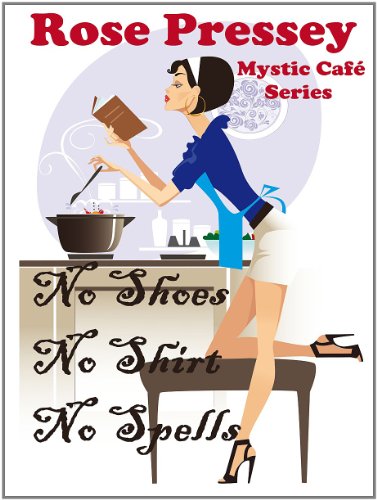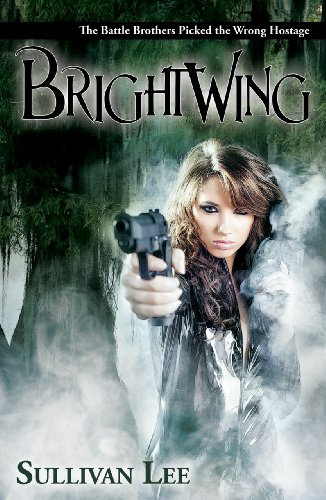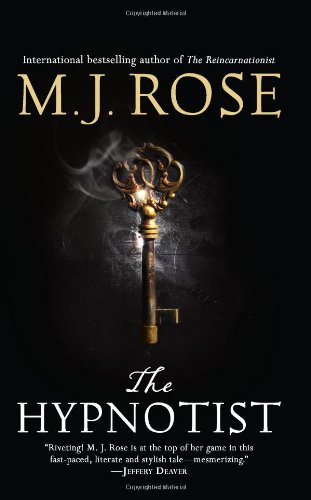Today I'm happy to welcome Douglas Skopp, author of Shadows Walking for an interview!
1. What sort of research did you do in order to write Shadows Walking?
My undergraduate degree was in history, majoring in German. My Master’s was in Medieval Studies and my Ph.D. in history, focusing on Germany since over the past two hundred years. My doctoral dissertation explored the political values of elementary school teachers in several regions of nineteenth century Germany, before the national unification in 1871. This began my research agenda focusing on the political values of educated elites in Germany. I had dropped out of college after my sophomore year, in order to learn German. This was in 1960 and the wounds of the war had barely scarred over; I knew first-hand through my family’s losses what the Holocaust had done. How such a calamity could be caused by a nation whose educated men and women were so accomplished, whose science, music, and intellectual life set such a standard for the rest of the world? I decided I would devote myself to learning and teaching others what had happened in Germany and why. If it could happen in Germany, it can happen anywhere.
I taught history at the college level for nearly forty years, the last thirty-four until my retirement at the State University of New York in Plattsburgh. In 1985-1986, I received a Fulbright Senior Scholar/Teacher Award to lecture and do research in Germany on medical ethics and practices there from 1880-1945; while I was a guest professor at the university in Hannover, I worked on documentary materials in twelve major German archives and at the major British library for the history of medicine. I interviewed health care professionals who were active during the Nazi era, victims of Nazi medical practices, and historians and archivists whose familiarity with the primary sources was invaluable in helping me learn more about the subject. (I describe all this in greater detail in the “Afterword” of Shadows Walking.) Before I returned to the United States in July 1986, I gave a lecture at Oxford about my preliminary research, and then a presented a more detailed one in October 1986 to the History of Science Association in Pittsburgh. I took a three-year break from my focus on Nazi medical ethics and practices to work on a celebratory history of SUNY Plattsburgh, as we approached our centennial year in 1989.
In 1990, I began writing a novel that centered on a how a typical Nazi physician might have decided to do what he did, and what he might have done once he perceived the consequence of his choices. I worked on Shadows Walking (it had five earlier titles and thirteen earlier drafts) over the next twenty years: from 1990 until June 2006, mostly during summers and holidays, when I retired from teaching, and then more intensely, until it was published in December 2010.
2. What's the most difficult thing about writing Historical Fiction? What's the easiest thing?
All my characters—especially Johann Brenner, who becomes a Nazi doctor—faced choices with dire consequences for others and for themselves. In order to “write them,” that is, to render their thoughts and words as realistically and as authentically as possible, I had to become these characters. That was painful. It took me nine years before I could write the first sentence that describes the first time Brenner is willing to participate in a crime against humanity. After I wrote it, I wept. That sentence is still in the novel.
Then came another problem. I found myself becoming numb and indifferent to the violence, just as Brenner did, as his choices led to more and more victims. To pull myself back from this, I returned constantly to my research notes and especially to the transcript of the Nazi Doctors’ Trial.
There is another problem writing this kind of historical fiction.
I wanted it to be as accurate as possible.
I earned my living as a professor of history, after all, and could not bring myself to violate what I knew was a fact.
I am irritated when I read historical fiction that deliberately distorts the historical record; irritating, too, is historical fiction without any reference to the historians who have researched and validated what the novelist is describing.
Everything in
Shadows Walking, to the best of my knowledge, either happened, or could have happened exactly as I describe it; my novel’s website,
http://www.shadowswalking/, has links to seventy short essays about the actual persons, places, incidents and circumstances around which the novel is woven, with sources for this information, plus six selected thematic bibliographies for readers interested in learning more.
Immersing myself in this history as I did, I found myself re-living the horrible outcome of it all.
There’s a scene in the novel where Brenner is watching two locomotives collide and is powerless to do anything about it.
I felt the same way.
Finally, there are many female characters in the novel. The women, in fact, are the most insightful and heroic of all the characters, and are especially tragic because they were allowed so little influence over events at the time. Writing with a woman’s voice was challenging for me. Women who have read Shadows Walking tell me that this aspect of it is especially successful; I am grateful if that is so. Frankly, there was nothing easy about writing this novel. It took me twenty years. It never really left my thoughts during all this time. I finished it two years after I was diagnosed with kidney cancer; I wanted to see it in print and on the shelf before I was on one myself. Now that it’s out, I am relieved, honored and humbled by the appreciation of those who choose to read it.
3. We don't see that many historical fiction books set during WWII from the point of view from anyone involved with the Nazis. What made you want to try to write from that perspective?
Many fine historians have written about aspects of the Nazi era, including excellent studies of how the Nazis’ justified their medical experimentation and policies. Fine as they are, these studies focus more on the highest ranking Nazis (e.g., Karl Brandt) or on the personalities and practices of the most monstrous Nazi doctors (e.g., Josef Mengele.) Their works are usually read by other historians and specialists. I wanted to write a novel in the hope that it would be more accessible to the general reading public. My aim is a believable exploration of the thinking and the choices of an ordinary Nazi doctor, a well-intentioned, reasonable, intelligent physician who persuades himself to commit crimes against humanity. Very few novelists have tried to enter the mind of a Nazi. I think of Dalton Trumbo’s fine, but unfinished novel, Night of the Aurochs (1979), and the more recent, highly controversial novel by Jonathan Littell, The Kindly Ones, (2009). Littell’s book, despite its merits, is very troubling because his protagonist, an SS officer, is such a bizarre, grotesquely violent, sordid human being. Aside from the factual distortions of Littell’s work, I find it impossible, for me at least, to believe that his protagonist could have existed as described; he’s more like a Mengele than anyone else I have studied in the archival materials, and even surpasses Mengele’s brutality, if that can be imagined. I didn’t want to write about the monstrous acts of a monstrous person. I wanted to write about the monstrous acts of an ordinary person—how someone obviously and painfully like all of us, with hopes, dreams, doubts, and fears, could become a Nazi. Exploring an ordinary man’s mind gives me insights into my own. It has been humbling to try to do this, and even more humbling to know that there is something of Johann Brenner, at least in me…and, I strongly suspect, in all of us.
4. What is your favorite scene in the book?
As I say, I am glad I finished Shadows Walking. Saying to myself, “It’s done, at last,” was the most enjoyable aspect of writing it. If I have a favorite scene, I suppose it is when Johann recalls his childhood in the little southern German town where he grew up, before World War I, a time when the world seemed good and beautiful. There was an order and harmony, at least to the world he knew, in contrast to what came during that war and stretched on, into the turbulent 1920’s, the economic crisis of the early 1930’s, the Nazi era, and ended in the unimaginable catastrophe of the next war. Johann’s mother and father loved him and reassured him with kindness; their authority seemed natural and good. The scene I have in mind is where Johann’s father, a travelling salesman selling silver and gold parts and other precious components to small town watchmakers and jewelers, delights the boy by showing him the contents of his business suitcase:
The case’s dark blue-black interior brightened into a deep, shimmering, satiny Prussian blue with flashes of purple, especially as the reddening evening sky seeped inside. There were forty or more satin-lined little compartments. In one, nestling in the rich colors, were dozens of shiny, glowing little metal wheels, some notched with gears, some smooth-edged, some bigger, some smaller. In another, springs that seemed to be made of silvery-blue strands of hair, all coiled in their nests. Another contained silvery rods and pins, in which one could see elongated reflections of the light. A small compartment held tiny rubies, looking like little beads of blood or the salty fish eggs a neighbor brought to their house on New Year’s Eve. A larger one had blank, white faces that looked like bright moons. Another, golden arrows of different lengths that would become the watches’ hands. And, most fascinating of all, ten compartments in a row contained tiny golden numbers of different sizes, zeroes, ones, twos, threes…. Johann learned to count up to ten by looking at these numbers with his father, as they would count together in a whisper. Then his father told him how to make an ‘eleven’ and a ‘twelve’ and counted again with him as they looked at the larger numbers on the wall clock. But he always wanted to look some more at the wonders in the suitcase. No matter how often Johann was permitted this vision, it always thrilled him. And it thrilled his father to see his son’s delight.
On some days, the suitcase would stay in its place at home, next to his father’s desk in the den. He could recall the moment when one night in bed, after his father had told him he would be leaving early the next morning, he decided to see the suitcase by himself. The temptation overruled his fear of violating his father’s commandment. After breakfast, when his mother was busy in the kitchen, he went quietly back upstairs. She thought he had gone to his bedroom to get a toy or look at a picture book. But he went to his father’s study and hoisted the suitcase up onto the desk—the place Johann thought that it should be opened to reveal its magical contents—and put it on its side. But it was locked. Johann heard his mother coming upstairs and hastily swung the case down to its original place and put it back where he found it.
In the evening, when his father came home, Johann begged him to open the suitcase.
“After dinner perhaps.”
“Please, Papa. I’ve been good all day.”
“After dinner” came, and his father agreed to Johann’s pleasure. When the two went up stairs to the study, there was the suitcase, just as Johann had left it. His father lifted it up to the desktop and slowly opened it a tiny crack. Johann pressed his face to the opening in order to not miss a single second of the vision. To his horror—he could recall the feeling even now, nearly twenty years later—all the tiny wheels and springs, the pins and little rubies began to rain out of their compartments and into the lid of the case. Where he had expected to see beautiful, enchanting order, there was chaos. In his enthusiasm to see it earlier in the day, he must have turned the suitcase upside-down. He could not remember how he was punished, only feeling all the more afraid because his father did not display the anger he knew he deserved.
I want this scene to evoke Johann’s need for order and his nostalgia for a world that has been lost. He had a need for a strong authority, a need to have someone above him. This need helped tip him in the direction of his support for Hitler and Nazism. It wasn’t the only factor, of course, but I think it was a significant one.
5. What three books would you bring with you if you were on a deserted island?
You mean I can’t have an e-Book, with thousands of titles? Am I all by myself? I’d at least want a device that would allow me to play audio-books, to remind me that books are creations of human beings, with voices that speak to me through them. Just three? Well, one would be the iconic book of photography compiled by Eduard Steichen, with text by Carl Sandburg, The Family of Man, published by the Museum of Modern Art in 1955. It would remind me that human beings like me have been elsewhere on the planet, that I am not alone. Another would be an anthology of the world’s great religious and philosophical writings, perhaps Karl Jaspers’ multivolume work, The Great Philosophers (1966)—although I would be cheating by taking along all six volumes. I would want to ponder how prophets, sages and thinkers tried to find a meaning for our existence. If allowed only one more title, it would be tough to choose among the great novelists, but I would settle for Albert Camus’ The Fall (1957); through the thoughts it evokes, I could try to think my way back to the themes raised by Austen, Swift, Dickens, Melville, Twain, Dostoyevsky, and other greats. Reading these, and scrounging for something to eat would keep me busy; I am allergic to coconut, by the way. But maybe the most practical book of all, given my isolation on a desert island, would be a big book of great jokes.
























